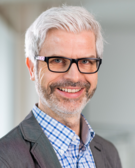Collective Trauma Integration in the Social Field
Combining social field theory with neuroscientific and medical/health models for the description and measurement of individual/collective trauma integration
Project overview
Recognising, healing and ultimately integrating collective trauma are essential and critical steps in rebuilding communities and nations after wars and other mass atrocities. The application of a trauma-informed approach to peacebuilding is therefore a fundamental step for reconstruction, without which much of the past trauma remains unaddressed. This ultimately leads to new and recurring cycles of crisis.
Scholars and practitioners from various disciplines have studied collective trauma. Early research focussed primarily on neuroscience, clinical psychology and psychotraumatology, beginning with Erikson (1976), and later on sociology and international relations (Lerner, 2022), among other disciplines. More recent research and academic work attempts to bridge these two directions by taking a social constructivist approach (Hübl & Shridhare, 2022; Matoba, 2022/2024a; Wagner et al. 2024).
Collective traumas are passed down through generations and are collectively experienced in a particular cultural context. If we focus on trauma at a community/societal level, what are the practical implications for mental health interventions? What is being done effectively and what needs to change? How can we promote collective healing?
To answer these questions, this international, multidisciplinary research project seeks to conceptualise the 'collective trauma integration process' as part of a multidisciplinary theory between methodological individualism and collectivism. Furthermore, we aim to develop this theory as trauma-informed peacebuilding that emphasises the importance of awareness of collective trauma, its causes, indicators and effects, as well as the capacities to ensure safety, support mitigation, restore social connectedness and ultimately reduce the likelihood of future violence.
Further information
- Responsible: Research Area Transformation at the WittenLab. Zukunftslabor Studium fundamentale
- Project members outside the UW/H:
> Claus Otto Scharmer, Ph.D. The MIT Sloan School of Management, USA (Scientific advisor)
> Rollin McCraty, Ph.D. HeartMath Institute, USA (Technical advisor)
> Thomas Hübl, Ph.D.The Wyss Harvard Institute, USA/Israel (Research project supervisor)
> Prof. Dr Dan Siegel, UCLA School of Medicine, USA (Research advisor)
Project management

Prof. Dr. med.
Tobias Esch
Professor
Faculty of Health (School of Medicine) | Institute for Integrative Health Care and Health Promotion
Alfred-Herrhausen-Straße 48
58455 WittenRoom number: 2.021